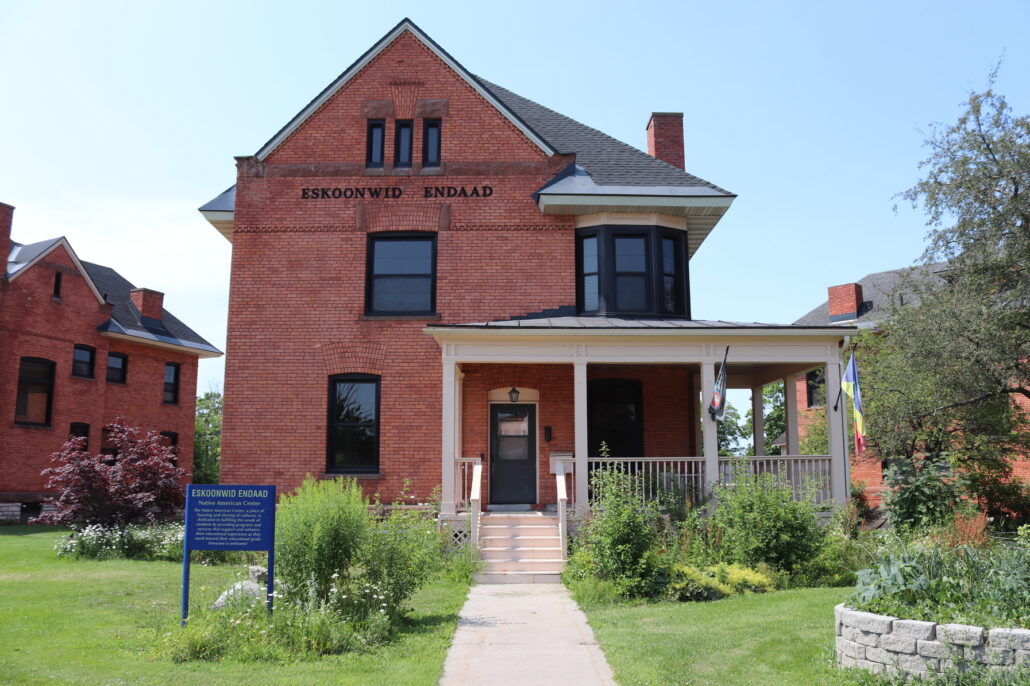
The Native American Center (Eskoonwid Endaad) promotes and supports Native American, First Nations, and other Indigenous cultures and communities. The center strives to support the Native/Indigenous community, as well as the greater Lake Superior State University community, bringing programming on Indigenous issues and culture to campus with events that include speakers, artist talks and installations, cultural enrichment performances, and Indigenous games.
The Native American Center also serves as a gathering place for the Lake Superior State University’s Native American student organization, as well as other student organizations. Students are encouraged to come to the Native American Center to study in its comfortable library, to use the computers in the learning lab, and to enjoy its welcoming kitchen and living room.
Lake Superior State University respectfully acknowledges that the University occupies traditional Anishnaabeg territory. This includes the ancestral and contemporary lands of the Bay Mills Indian Community (Gnoozhekaaning), the Sault Sainte Marie Tribe of Chippewa Indians (Bawaating), the Garden River First Nation (Gitigaan-ziibi), the Batchewana First Nation, and the settlement lands of the Métis Nation of Ontario. We acknowledge that the University resides on land ceded in the 1820 Treaty of Sault Sainte Marie, the 1836 Treaty of Washington, and the 1855 Treaty of Detroit. Lake Superior State University acknowledges the history of the nations around our campus, and is committed to a relationship with the nations of our region based on the principles of mutual trust, respect, reciprocity, and collaboration in the spirit of reconciliation.
Lake Superior State University is proud to serve a large number of Native American students, and provides those students with easy access to free tuition through Michigan’s Indian Tuition Waiver program. To learn more about this opportunity, visit LSSU’s Michigan Indian Tuition Waiver site.
LSSU emphasizes its commitment to support Native American students in the strategic planning of the institution. Key components of the strategic plan include:
Goal 2.5 – Incorporate history, traditions, languages, and cultures of Indigenous peoples in all University service areas.